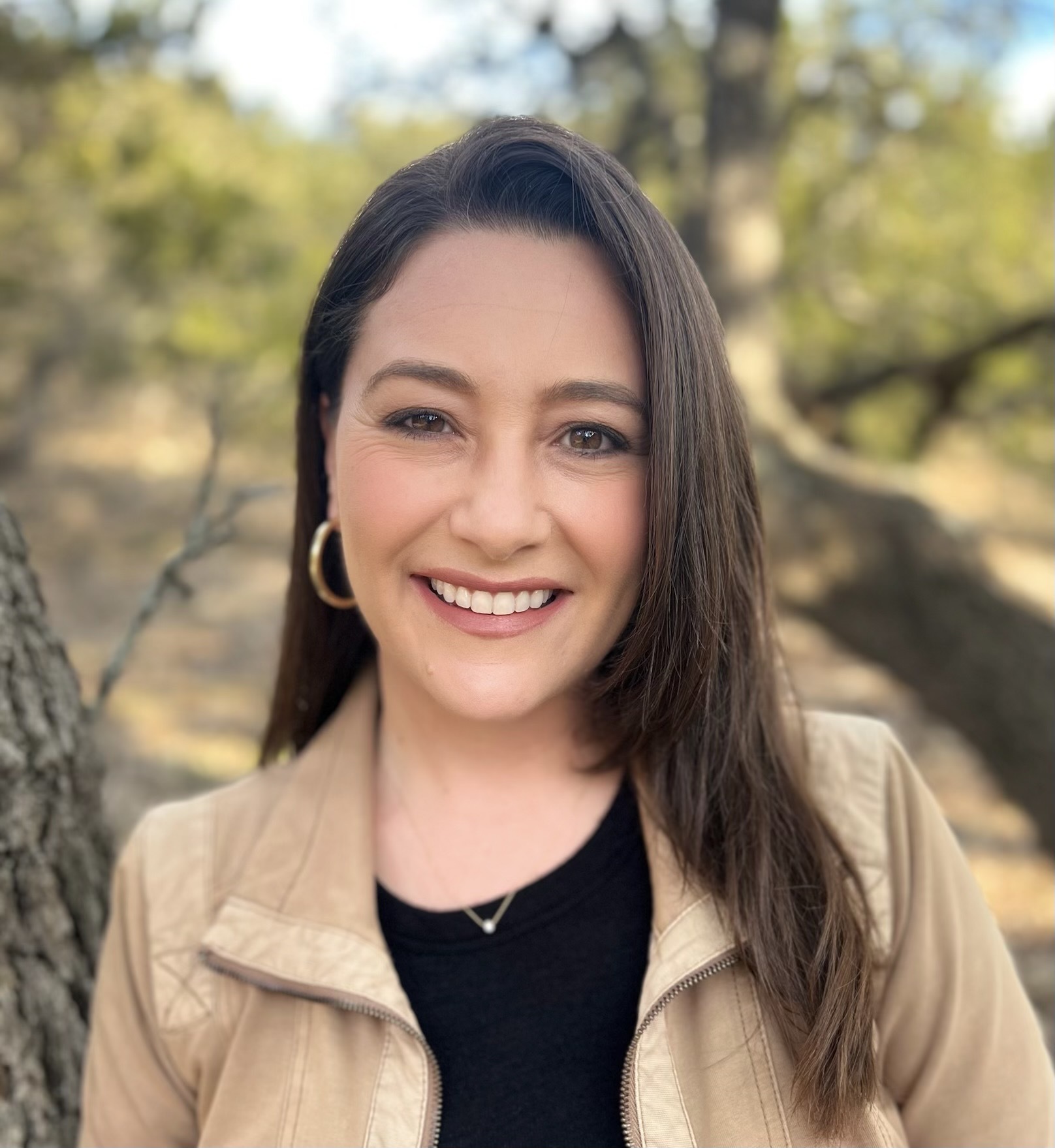< Back to all episodes
Carolyn Berkowitz and Sam Caplan
The starvation cycle in corporate social responsibility: How CSR professionals can right the ship
This episode of Impact Audio features Carolyn Berkowitz, president and CEO of ACCP, exploring how CSR professionals can get their teams out of the starvation cycle.

The starvation cycle in corporate social responsibility: How CSR professionals can right the ship
Carolyn Berkowitz, President and CEO of ACCP, and Sam Caplan explore how CSR professionals can get their teams out of the starvation cycle.
Description:
Many CSR professionals have seen their budgets and headcounts shrink over the past year, but expectations continue to hold steady. A big part of the issue is the way corporate leaders value (or devalue) this work. As president and CEO of the Association of Corporate Citizen Professionals, Carolyn Berkowitz has a unique perspective on how to use data to get your company’s social impact programs out of the starvation cycle.
This episode digs into how to:
Channel all the forces that shape social impact work
Capture the full value of corporate social responsibility
Invest in the research that will support real change
Build now with a clear vision for the future
Guests:

Carolyn Berkowitz
Carolyn Berkowitz joined ACCP as President and CEO in July 2018. She is a nationally recognized corporate social impact leader who has guided nonprofits, foundations, and Fortune 500 companies to solve complex social issues and realize their greatest impact.
Carolyn was twice named among the “100 Most Influential Business Leaders” in Washington, DC by the Washington Business Journal, earned the Washington Area Women’s Foundation’s Visionary Award, and was appointed by Governor Terry McAuliffe to serve two terms on the Virginia Community College Board. Carolyn is a weekend artist, a hiker, and a fiercely loyal mom to her two children and her pointer, Macy.

Sam Caplan
Sam Caplan is the Vice President of Social Impact at Submittable, a platform that foundations, governments, nonprofits, and other changemakers use to launch, manage, and measure impactful granting and CSR programs. Inspired by the amazing work performed by practitioners of all stripes, Sam strives to help them achieve their missions through better, more effective software.
Sam formerly served as founder of New Spark Strategy, Chief Information Officer at the Walton Family Foundation, and head of technology at the Walmart Foundation. He consults, advises, and writes on social impact technology, strategy, and innovation.
Connect with or follow Sam on Linkedin, listen to his podcast Impact Audio, and subscribe to his bi-weekly newsletter The Review.
Transcript:
Episode notes:
Follow Carolyn on LinkedIn
Learn more about ACCP
Dig into the differences between CSR and ESG
Check out the corporate purpose initiatives Carolyn mentions:
Zappos’s commitment to live and deliver WOW
Capital One’s mission to change banking for good
Read about how Gen Z workers prioritize company values
Check out ACCP’s 4th annual Insights Survey
Dig into the KPMG sustainability survey Carolyn mentions
Learn more about the history of scurvy
Transcript:
[MUSIC PLAYING]
If you're not a historian you might be surprised by what sailors feared most prior to the 19th century.
It wasn't storms or pirates. It wasn't shipwrecks or war. It was scurvy.
No matter how big of a crew, how advanced the ships, a whole fleet could be brought to its knees by the disease. We know now that the cure for scurvy is the vitamin C found in fruits and vegetables. But for centuries, people searched desperately for an answer.
The irony is they found it, more than once. As early as the 1500s, ship captains were drawing a connection between a lack of produce and scurvy, but over and over again, those lessons were forgotten or ignored.
Nearly centuries later, during the Crimean War, whole shiploads of cabbage were tossed into the sea as soldiers abroad suffered from scurvy. No one had passed on instructions to include the cabbage in the men's rations.
Looking back with the knowledge we have today, it's easy to feel frustrated at how such a pervasive problem had a relatively simple and known solution all along. But that's how progress happens. Knowledge crests and recedes.
In the world of corporate social responsibility, we're watching the same cycle. Corporate leaders learn how important CSR is to their business one year, but those lessons seem to fade the next. Part of the CSR professional's role is to be the steady voice that can help leaders remember the lessons we've already learned about the value of social impact without having to relearn them the hard way.
[MUSIC PLAYING]
Welcome to <i>Impact</i> <i>Audio.</i> I'm your host, Sam Caplan, vice president of social impact at Submittable. Today, we sit down with Carolyn Berkowitz, president and CEO of the Association of Corporate Citizen Professionals, also known as ACCP. They provide resources and support to people all across the CSR landscape.
Carolyn helps individuals and teams make the case for CSR programs. She believes that one really important component of doing this work right is getting clear about the language we use to talk about it. She draws the lines around purpose, ESG, and CSR.
ACCP's perspective is that purpose, ESG, and CSR are three distinct disciplines that do necessarily interact with one another and intersect like the Venn diagram, but they are different. So purpose is the company's reason for being on. Beyond the profit, how does the core work of our business help better lives for our customers? So you could think about faster sneakers or a world without disease or more human banking or customer service. Those things are a company's purpose, which can have ESG and CSR expressions of it but they are different.
So ESG and CSR are, in fact, those expressions. ESG is this framework or the set of standards for actions that the company takes, that they use to manage stakeholders, they use it to evaluate risk, and they really use it to increase their value in financial markets. But it is about, at the core, their work in the environment and their stewardship of their work in social issues and their governance practices.
And then CSR is the actions that a company takes that demonstrate its role and responsibility specifically to bettering society. So it could fit inside.
A lot of companies do sort of fit this inside, or they think about CSR as their S of ESG.
But it is really more often, it's not regulated, or there's much less of a threat of it being regulated. And it is really about the relationships with community that make the context for business better.
When it comes to connecting CSR to a core purpose, you can think about it across multiple layers. A company has to find their own unique definition of what they're trying to achieve both internally and externally.
You can further drill down on purpose, and you can say that their purpose could be one of three things. One is about the product and bettering the product. One could be about society and bettering society as a function of the product. Or one could be, and this happens a lot with B2B, companies, more about the culture.
So actually Zappos is not a B2B company, but they are one where their mission is their culture. So they are all about customer service, and that's their contribution to the world, if you will. And so they would do a lot of volunteering and a lot of associate engagement activities with their CSR because that would relate to their purpose.
But if you take like companies that are about--
Beyond Meat is a perfect example of companies whose purpose is, in essence, completely expressed through their CSR. That is what they do. And so there's variations on a theme.
Then you take a company like Capital One who is a bank and their purpose is to make banking more human. And so that has both implications. How do they make banking more human with certain populations? That would be their CSR work. And so you can see, there's different kinds of purpose, and different kinds of companies lean into those differently.
For companies looking to attract and retain talent, CSR plays a pivotal role. It's how companies help their teams connect to a deeper sense of purpose. And for employees, values are often at the top of their priority list.
People want to work at companies where, first and foremost, they feel they belong.
So the feeling of belonging trumps everything else. And that's where you see a lot of the DEI initiatives and a lot of the volunteering initiatives really come into focus because employees want to belong in a way that they can be their authentic selves. Employees also want to work at companies that share their values, and they will leave companies that don't. Especially as the generations change and the workplace, more and more of the values are being driven by the social values that CSR often encompasses.
And so fairness and equity and being able to be part of the decision making about the company's money and where it goes in terms of community building. All of those things are more and more important to employees. And so both in recruiting, we see more and more companies talking about their CSR and in retention for sure, the experiences that employees have at the company related to engaging in their community and related to their sense of belonging. Both of which are addressed through CSR really does matter.
As much as we say we know that values matter to employees, corporate leaders tend to forget. It seems to be a lesson companies have to learn again and again. But as younger generations become a bigger part of the workforce, it's imperative that companies figure out how to fold social impact into their work in an authentic way.
A large percentage of all workers want to work for a company that has a social conscience and that has values that they believe in. However, where you really start to see it make a huge difference is with millennials and then with Gen Z. Both of which will take a lower salary, 14% lower often, if they're willing to forfeit that percentage to work for a company that has values that they believe in.
So we have a clear picture of how much CSR means to employees, but the trouble is that this value is not always reflected in how companies plan and fund CSR programs. Often, that's where the disconnect happens.
A lot of the work ACCP does is to help close that gap. As part of this effort, they've launched the Annual CSR Insights Survey to hear directly from the professionals responsible for corporate social responsibility.
So each year, ACCP surveys its members and a broader group of professionals in the field of corporate social responsibility and asks them what's on their mind, what's happening in their companies, what they're struggling with, what the environment around them and the environment for business, how it's impacting their work and their company's work and their ability to get things done, et cetera. And so we've been seeing lots and lots of trending issues, more and more responsibility as more and more stakeholders invite or want to be part of this work, just like we were talking about with employees, but same thing with shareholders, et cetera. So all of the reasons why people want this is creating more and more demand from a variety of different directions. And so we have really seen that increase. And as a team, we've dug into it more and more and more each year in the four years that we've done this report.
So we started it in 2020, and it began truly out of what's the impact of the triple crisis of 2020--
coronavirus, reckoning with racial equity, and the economy. What's the impact of these things on your CSR work? And that's what the first report was called.
And since that time, it's really evolved into a general insights report. We've seen some trends continue. And strikingly, we've seen some things really back off of the lofty goals of 2020.
And the important goal--
so I say lofty, but we did them all for a reason. So there's a lot to think about now and it's a complex being inside a company in a CSR or ESG role is really complex right now. And for me, that's the biggest takeaway for this year of how hard it is for folks to do.
Seeing companies back off of CSR is disheartening, especially after all we've learned over the past few years about how business and community needs overlap. Right now, many CSR teams are facing budget cuts.
It evokes the story of the cabbages being thrown into the sea. As much as we know, it's the wrong thing to do, it's happening because the people in charge don't fully grasp the value of what's being built.
The economy is the number one driver of the current cut, but you've been in this field as have I, and it's cyclical Every time, every couple of years, there's cuts and then you build back, and then there's cuts and then you build back. So the function is not yet fully understood by executives, and ESG was getting there.
In a KPMG study, 74% of C-suite executives said that they were starting to feel or they understood in demonstrated ways that ESG supported their bottom line. And yet those same leaders were going to cut this year, and did cut this year. And so I think, they might understand it. But they don't understand it all the way down to their bones like we do.
And I think it is hard not to have an easy thing to cut. It doesn't feel as important as the investment in this product or more headcount for compliance functions. But the truth is it is And so it's really getting down to their bones in understanding it that we need to work on together.
I'm Keriann Strickland, CMO at Submittable. We're less than a month away from our <i>Impact</i> <i>Studio</i> event. This year we have CSR experts from Microsoft, Hewlett Packard Enterprise, the T. Rowe Price Foundation, Electronic Arts, and Engage for Good.
They'll share how they see their work shaping the future of corporate social responsibility. It's a great chance to get a clear picture of how your work fits into the broader social impact landscape. Now, back to the episode.
For many teams, resources have been pulled back, but expectations haven't. ACCP's Insight Survey shows how the budget cuts are really fraying the people doing this work. And while in the short term, some teams will be able to muscle through, the reality is that this high pressure and low resource approach will undercut company's ability to follow through on their promises.
I talk to members every day. I talk to people who are doing this work. That's my job. And I hear them when gun violence was and still is a huge issue. But after each one of those moments, I would hear our members and others say the company wants us to respond with a statement right this minute.
And the personal impact that they were feeling and how emotionally interactive they were with these stories that sometimes were in their home towns. It was just really stark to me. It means I'm going to work longer hours to get my executive suite disinformation when I don't have time to process it myself.
So now, the resources are constricting. And we could see that with the number of companies losing headcount, which others in 2020, this is the highest point in three years. The fewest companies adding headcount and the increased demand and responsibility. So I think it's a problem for a variety of reasons.
1, for humans, it continues. It's a shocking 1 in 5 that are reporting mental health issues as a result of this or mental health concerns. And that's not good for the field.
Number 2, as stakeholders want this work to increase, the quality potentially could go down. So one of the things that you noted is all of the increased demands, but one of them that struck me was 46% saying they were afraid that they won't meet expectations. Well, there are two choices. You either work 24 over seven, or you don't meet expectations.
So that has multiple impact. It has an impact on the person and the burnout. It also has a very potentially real impact on the company's ability to make the change that they intend to make.
And so ACCP is really advocating for increasing the resources in this dimension. It is a very inexpensive function comparatively.
And to cut corners and burn people out and do less quality of work erodes public trust in all the work that companies have done so far. And so it costs so much more to build back trust than it does to maintain trust. So you know influencing C-suite leaders to resource this critical function that has--
I think of it like a triple word score in Scrabble.
Not only are you reducing risk, but you are building employee engagement and morale and you are changing the context of business for your company to do business in the community. There's so many benefits of doing it. And when you're going to pay $1 for three different things to happen, why would that be the dollar that you're cutting?
One of the lessons that we seem intent on unlearning and relearning is how valuable diversity and equity are, and what it takes to achieve them. A couple years ago, ACCP made an effort to get a clear picture of who is doing social impact work in the corporate sector. They used those findings to help shape how they approach DEI work within CSR teams.
In 2021, ACCP started some research on equity in the CSR profession because anecdotally, we knew that it was primarily driven by white women. But there was nobody actually taking a look at that and empirically demonstrating that. And then beyond just the demographics of the field, we dug a little bit into, so what does it feel like as a BIPOC professional in the field? What are the experiences that people of color are having in their work in corporations doing these things?
And so at that point, we learned a lot of things. We learned the field was primarily, in fact, driven by white women. We learned that people of color experience more challenges breaking into the field, many more challenges being promoted in the field. And while breaking in and being promoted are difficult anyway because it's such a small group of people inside a company that do this thing, the process had often been who do you know and growing up in that environment and being tapped on the shoulder as a high performer to get into a role like that.
And so there wasn't anything really systematic about diversifying that field. And so what I always saw was that the CSR department was helping the rest of the company recruit diverse talent, and it was not diverse at all itself. So it was like the shoemaker's son kind of thing with holes in their shoes.
And so in producing that research report, ACCP declared as one of its four strategic pillars that we wanted to work on diversifying the field and thinking about what we could do to diversify the field. So in the CSR Insight Survey now in 2023, we asked some of those basic questions again. We didn't repeat the whole study, but we asked the same question so that we could follow up on how the field was doing in terms of its diversification.
What they found in these studies is a bit of two steps forward, one step back when it comes to diversity and equity in CSR. Though, overall, there has been an increase in BIPOC professionals in CSR, there's actually been a drop in the number of people of color in leadership positions, and we've seen this trend before. When leadership becomes less diverse, the rest of the field tends to follow. So it's really important for CSR leaders to understand that DEI is not a separate initiative from social impact. It's the bedrock of their work.
I think some of it is again understanding.
Folks need to understand to their bones that people with lived experience and people who are part of the communities that CSR departments are serving and people with a variety of different backgrounds and experiences are really necessary to do good equitable work, which is required for social change.
Really understanding that is important. I think while staff turnover, while hiring is more limited it will be more difficult to make that change quickly. But I think there is an understanding in the longer term that we need to continue to promote that diverse leaders beget diverse teams, diverse teams do better work.
So ACCP is considering a variety of programmatic responses to that and working on those right now.
So working with mid-career professionals of color to think about and help prepare them for leadership positions as positions turnover so that we can backfill some of the loss that we experienced in this last year is a really important thing that we think we can do.
We think that telling the story to companies and really helping them with very specific tactics and strategies to diversify their teams is a really important thing to do because it will take a real partnership in order for the change to be made. And like any change, when it's about people, it takes a little longer because the opportunity to just hire on a dime isn't there. So we have to wait for transitions of really good people. And be careful what we wish for, but we need to be really developing the pipeline and having people come into the field who look different than traditional CSR professionals have looked and have different experiences.
[MUSIC PLAYING]
Thanks for listening. We hope this episode helps you shorten those cycles of learning and relearning. To hear more conversations like this, be sure to subscribe to <i>Impact</i> <i>Audio,</i> and join us for our <i>Impact</i> <i>Studio</i> event this September. Register at submittable.com/impact. Until next time.
[MUSIC PLAYING]
Additional Resources
Season 3 , Episode 6| 30:03 Min
The challenge model: How to flip the philanthropy script

Kristen Molyneaux

Sam Caplan
Season 3 , Episode 2| 26 Min
Breakthroughs in Social Impact: How Integrated CSR Unlocks Innovation

Erin Baudo Felter

Sam Caplan
Season 3 , Episode 1| 30 Min
Lessons from the Future of CSR and Corporate Volunteering

Jen Carter

Sam Caplan








